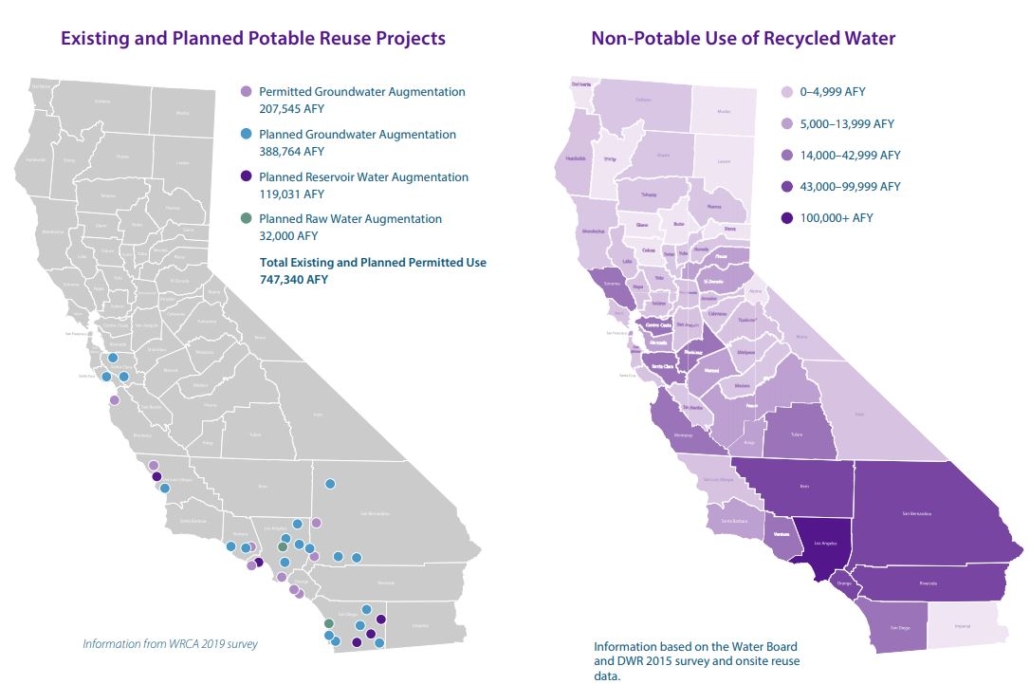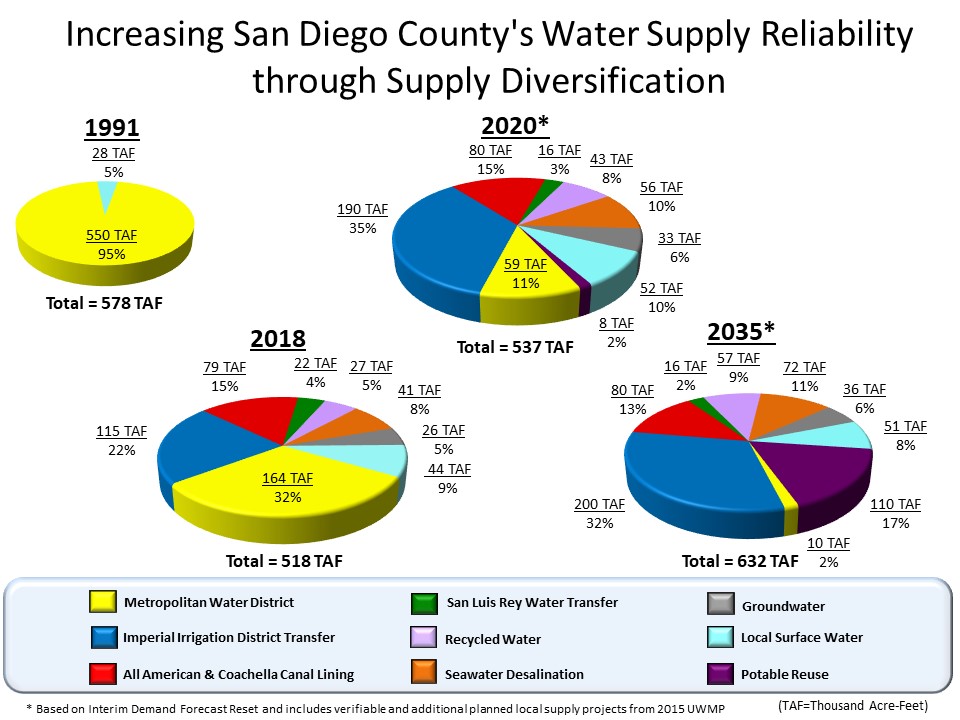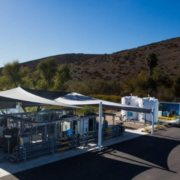A new plan recommends four strategies to advance water reuse in California over the next three decades – an important part of both the state and regional water resilience portfolio.
The California WateReuse Action Plan includes a comprehensive set of proposed actions that will more than double the use of water recycling in California and help prepare the state for the impacts of climate change, according to WateReuse California, which released the plan in July.
But getting to that goal will require several steps, including: Completing research to advance water recycling and potable reuse; developing and streamlining recycled water regulations and permitting; increasing grant and loan opportunities to expand recycled water infrastructure; and, implementing integrated regional planning.
The U.S. EPA is developing a similar plan to advance water reuse nationwide.

The California WateReuse Action Plan recommends strategies for increasing water recycling statewide. Graphic: WateReuse California
San Diego water agencies collaborate on plan
Recycled water is expected to be the next major source of local water supply for the San Diego region – and the region has a long history of working together toward that goal.
The San Diego County Water Authority collaborated with its member agencies to provide feedback on the plan’s development.
“We appreciate how this new plan aims to increase water supply diversification, including recycled water,” said Lesley Dobalian, principal water resources specialist with the Water Authority, and a contributor to the final action plan.
“Within the next 15 years, potable reuse and recycled water is projected to make up more than a quarter of San Diego County’s supply, but reaching our potential will depend in part on statewide implementation of the plan’s key findings,” Dobalian said.

Recycled water and potable reuse are forecast to make up 26% of San Diego County’s water supply by 2035. Graphic: San Diego County Water Authority
Water Resilience Portfolio
In July, the Water Authority Board endorsed Governor Gavin Newsom’s Executive Order N-10-19, directing development of a water resilience portfolio approach that meets the needs of California through the 21st century.
On July 18, state officials toured San Diego County water infrastructure to see the region’s successful water portfolio approach for supply diversification, as they work to create the statewide water resilience portfolio.
In San Diego County, several agencies are developing or expanding water recycling plans, including the City of San Diego, Padre Dam Municipal Water District, Helix Water District, the City of Oceanside, and several additional projects in North County.
National water reuse action plan
At the national level, EPA is also developing a Water Reuse Action Plan, or WRAP, to advance water reuse. The Water Authority met with its member agencies and submitted comments to the U.S. EPA for the WRAP.
A draft WRAP is expected to be released by the federal agency at the national WateReuse Association Symposium September 8-11 in San Diego.
“California is widely recognized as a national and world leader in water recycling,” according to the California WateReuse Action Plan. “Recycled water supplies offset approximately 9% of the state’s urban water demands and agricultural reuse provides reliable water supplies for farmers throughout the state.”

The U.S. EPA plans to release a draft Water Reuse Action Plan to advance water reuse, at the national WateReuse Association Symposium September 8-10 in San Diego.






